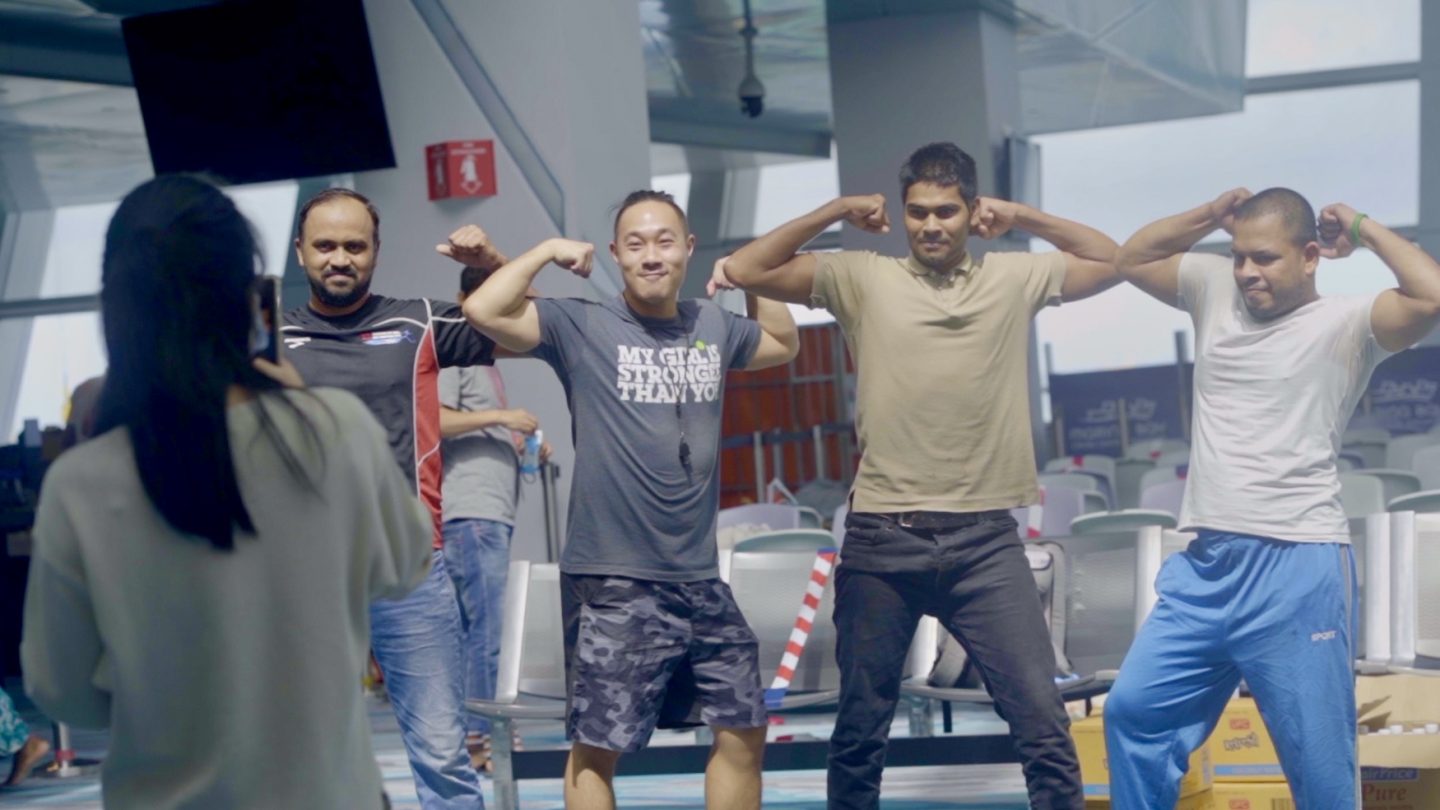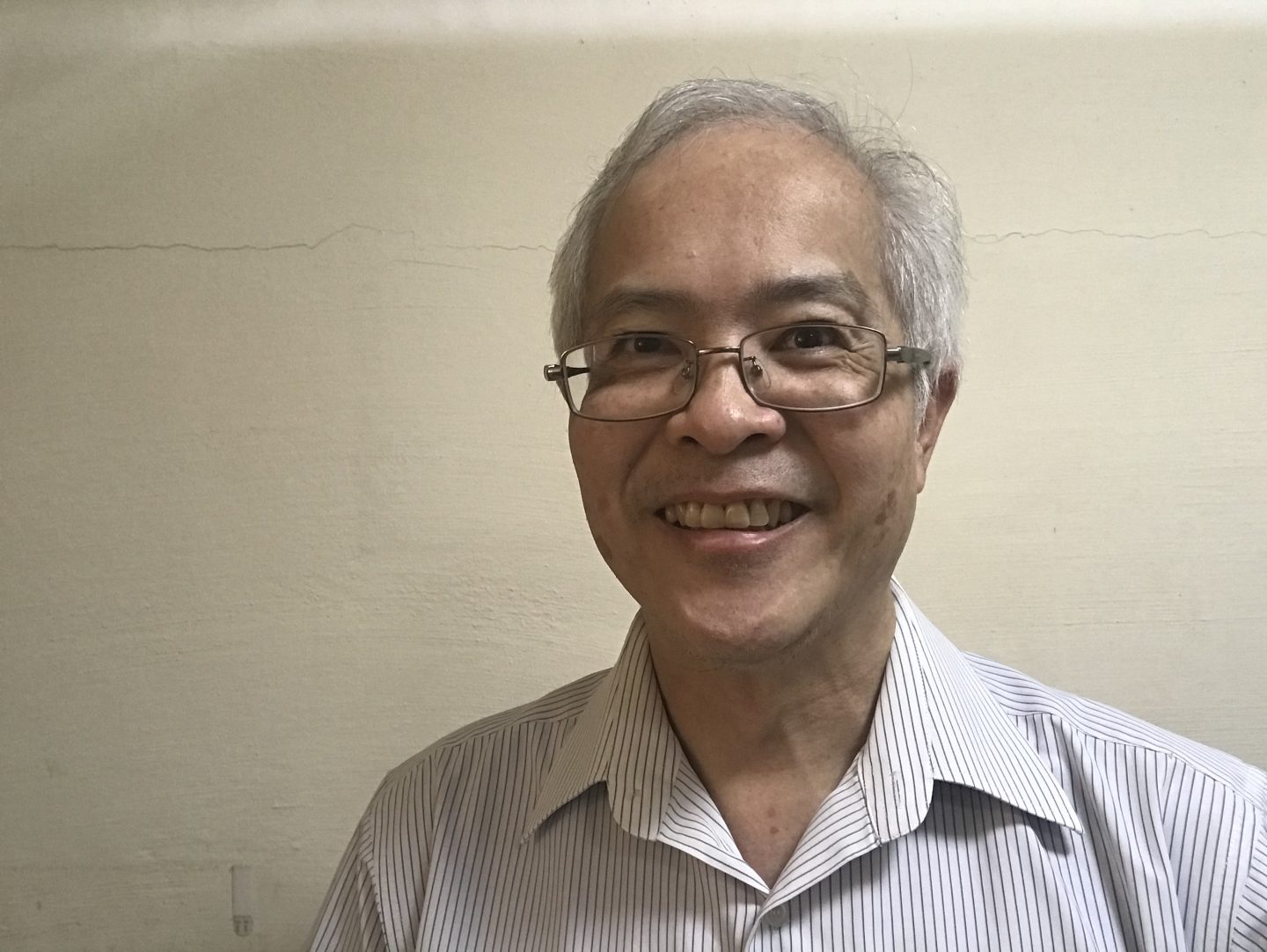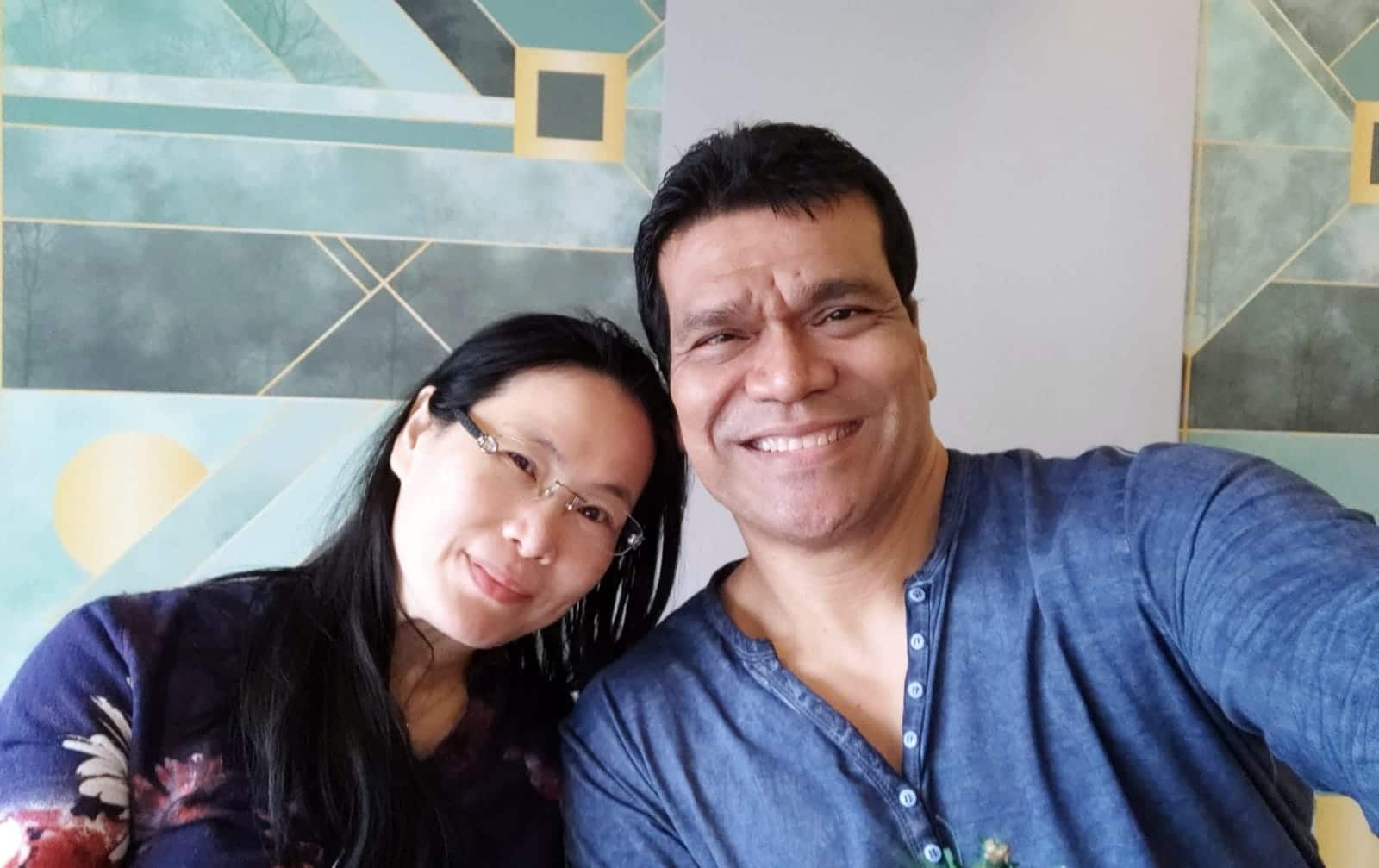Hesitant to reach out? The cultural border may be in your mindset
Mark Syn // September 2, 2020, 6:03 pm

To help alleviate cabin fever for migrant workers confined on ships during the pandemic, staff and volunteers from NGO HealthServe held a programme thrice a week to engage them. Photo by Herman Tan.
The Gospel often readily spreads within a culture, but does not easily jump into other cultures unless somebody intentionally takes the Gospel across the cultural boundary. This was one of the key insights I gained from the Perspectives course as a young man.
However, globalisation, the diaspora and the transient nature of the global workforce translated into tremendous opportunities for missional local churches to perform this work in their own backyard.
This requires two significant shifts: In our mindset and in the tools we give our members.
This article, a first of two, will look at shifting our mindset.
Cultural silos
The need to shift mindsets may not be immediately obvious if we continue to see global missions as the task of cross-cultural missionaries who leave their own country to live and minister in a foreign land.
However, rather than thinking of the unreached harvest as a distant geographical location, we need to see it as a close-proximity, cultural boundary to be crossed.
Many of us have regular opportunities to rub shoulders with people from other countries on a regular basis.
The well-equipped local church now has tremendous opportunities to help bring the Gospel to the unreached without stepping foot out of their nation. This has always been strategic, but is even more so with the limitations of travel caused by Covid-19.
Perhaps, Singapore does not need to be convinced that we live in the midst of an ethnically diverse community. We have always been multi-cultural. Our geographical location, status as a convenient East meets West hub in the region and our historical demographic have made this part of our DNA.
As of June 2019, approximately 29.5% of our population or 1.68 million are non-residents.
Singapore’s involvement in overseas missions has flowed out of this global mindset, but perhaps, our missions strategies and church outreach have been slower at waking up to the fact that the phenomena of having the world in our backyard may be one of the great opportunities for missions to the unreached.
Our life and faith is often contained in our cultural silos.
Many of us have regular opportunities to rub shoulders with people from other countries on a regular basis. We have culturally diverse workplaces, access to affordable travel, we sit in classes with foreign students and work in an interconnected business world.
Covid-19 may have brought a temporary change to this rhythm, but more than ever, having multi-cultural awareness and skills is a necessary for effectiveness in ministry, our professional endeavours and life in general.
The reality however, is that many of us may not engage deeply with people from other cultures. Our life and faith is often contained in our cultural silos.
Food and friendships
If we are to bring the Gospel to the world in our backyard, we have to be intentional and culturally adventurous.
I have a friend, Larry* (not his real name) who stumbled into some new cross-cultural friendships by accident.
Larry was very excited as he shared with me over an excellent char kway teow lunch.
We have to be intentional and culturally adventurous.
He had some workers come to his HDB flat to do some renovations and he took the opportunity to start a conversation with them. Fascinated by their experience and struggles of living and working as foreign workers in Singapore – far from their families and in what is a strange environment to them – he followed up on the relationship after they had completed this work. He was delighted at how friendships formed quickly.
“They could see I had the ability to just be their friend”, said Larry. “And trust grew to the point where I would pray for them for their needs.”
“What were some of the things you learned in this experience that helped you get to know people of another culture?” I enquired.
“I think food is a common cultural bridge. They would sometimes come to my home and I would make sure I had food that they liked eating. We would also eat at the coffee shops and at the parks,” said Larry.
“Language was a bit of a challenge, but with hand gestures and drawings, we somehow communicated.”
Culture shock
Larry also invited them to attend a Christmas programme at his church. “They were so happy because they had never been invited to a Singapore community event. They had always felt like they were on the fringes.”
“How do you think they found the experience?” I asked.
It takes a servant heart to initiate a welcoming conversation with a stranger.
Larry looked a little more thoughtful and paused for a while to consider this. “It was an enjoyable experience for them – they asked if there were other such events which they could attend. But I do think there was a little discomfort when they came to church. A few people greeted them, but not many. Maybe we are all busy on Sundays and we are excited to catch up with the people we know, but they often stood alone in their group”.
He continued: “In my excitement I tried to encourage others in the church to come along when I met with them, but I felt that people were uncomfortable. It was an experience outside their cultural comfort zone.”
Many churches in Singapore have adopted HDB flats, started programmes in migrant worker communities, and during this Covid-19 season, have reached out in sacrificial ways to help foreign workers who have been stranded here when the borders were locked down.
Celebration of Hope also championed this priority, with a rally especially for migrant workers and encouraged local churches to pick up this initiative.
As we engage with people from other cultures, we grow in our confidence and capacity to show love them.
Our willingness to step out of our cultural comfort zones is the first step to reaching those in our backyard with the love of Christ.
It takes a servant heart to initiate a welcoming conversation with a stranger. It takes a willingness to even feel awkward in the beginning as we search for common ground in the conversation.
When we mix with people from another culture, we often experience culture shock: We may feel awkward as we struggle to speak to them, we may not understand their sense of humour and we may even embarrassed when we make cultural mistakes.
In self-preservation, our natural tendency is to avoid these uncomfortable situations. However, you may be encouraged to know that this is also the experience of long-term missionaries who serve overseas. But as we continue to engage with people from other cultures, we will grow in our confidence and capacity to show love them.
New conversations
Here are a few universal things which can help build relationship bridges:
1. Show hospitality with a smile: A genuine smile does a lot to break the ice, especially when we realise that our visitors are probably more uncomfortable than we are (since we are in our home environment, and they are not).
2. Eat together: As Larry pointed out, food is a universal relationship catalyst, and this is very true for most Asian people. Find out what they like to eat you’ll find their stomach is the way to their heart.
Ask to see photos of their family, and make sure you have your family photos in your wallet, ready to show them.
3. Be interested in their family: Asking somebody about their family (they probably desperately miss) is a sure way to get them talking. Ask to see photos of their family, and make sure you have your family photos in your wallet, ready to show them.
4. Ask about work and challenges: Ask them about the challenges of working in a foreign country, away from their family they are probably missing. They will appreciate a listening ear and sympathetic heart.
5. Discover their spiritual hunger: Many of our new friends will be from cultures where being spiritual is a natural thing, so do not be afraid to ask them what they believe. It may lead to spiritual conversations.
6. Offer to pray for them: Asking then about their challenges will naturally lead to asking them if you can pray a blessing upon them or for a need that they have. Most people will be delighted to allow you to do this.
7. Help with practical needs: As we have seen during the Covid-19 crisis, small gestures of practical help can communicate our love to them in a tangible way.
Studies show that most people come to faith though relationships. That is, somewhere along the journey, a significant person took enough interest to know and care for them.
The opportunity to share the love of Christ begins with friendship. At a more basic level, evangelism – cross-cultural or within our own culture – often starts with being open to conversation with somebody we do not yet know.
Woman at the well
I am constantly impressed with Jesus’ conversation with the woman at the well.
The Samaritan woman said to him, “You are a Jew and I am a Samaritan woman. How can you ask me for a drink?” (For Jews do not associate with Samaritans.) Jesus answered her, “If you knew the gift of God and who it is that asks you for a drink, you would have asked him and he would have given you living water. (John 4: 9-10)
Perhaps the greatest barriers to the Great Commission are not Covid-19 but the ones in our heart.
In that cultural context, when a Jewish man came across a Samaritan woman, it should have been an uncomfortable, awkward encounter. The natural disdain that the Jews had for the Samaritans led most of them to keep their distance, but Jesus took the opportunity to engage her in conversation. Even the disciples were surprised when they got back.
As we know, Jesus skilfully and gently led the Samaritan woman to a deeper understanding of worship, God and himself. She in turn led the townspeople to Jesus.
Jesus demonstrates that it starts with a willingness to engage in conversation with a person with whom we would not naturally do so.
Perhaps the greatest barriers to the Great Commission are not Covid-19 or the complexities of working overseas, but the ones in our heart. As we open our hearts to such conversations – and pray to the Lord to bring them our way – may we be delighted with serendipitous connections that become bridges to share the love of Jesus with others.
The Second Shift we have to make is that of the skills we acquire for cross-cultural work. Even if the work is now in our backyard, we still need to have some basic awareness to intelligently relate across cultures.
Part 2 of this article will unpack how “friendship” looks different in other cultures and how it is important to grow in our cultural intelligence. Check back for Part 2 on September 9!
#WelcomeInMyBackyard campaign urges Singaporeans to show warmth to migrant workers
We are an independent, non-profit organisation that relies on the generosity of our readers, such as yourself, to continue serving the kingdom. Every dollar donated goes directly back into our editorial coverage.
Would you consider partnering with us in our kingdom work by supporting us financially, either as a one-off donation, or a recurring pledge?
Support Salt&Light



